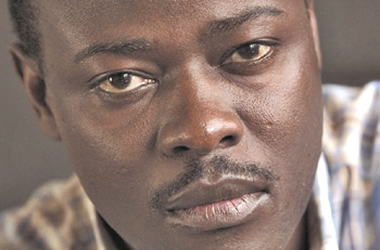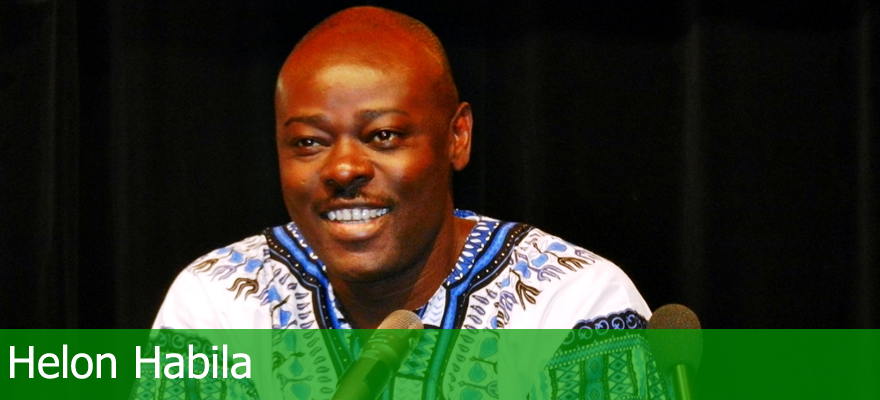Helon Habila is a Nigerian poet and novelist whose debut novel, Waiting for An Angel, won the 2003 Commonwealth Literature prize for the best first novel by an African writer.
Early Life and Education
Habila was born in 1967 to a Christian Tangale family in Kaltungo, Gombe State, in the northern middle-belt region of Nigeria. His father, Habila Ngalabak, started out his career as a preacher working with white missionaries, and later became a civil servant with the Ministry of Works, which meant that the family often moved around when Habila was a young boy. His mother contributed to the family income with her work as a tailor. Habila completed his primary and secondary education in the city of Gombe in 1984.
After high school, Habila enrolled in the engineering programme at the-then Bauchi University of Technology (now Tafawa Balewa University in Bauchi State) as his father had always dreamt about his becoming an engineer, but he dropped out after one year. He then switched to the Bauchi College of Arts and Science only to drop out again after two years; he later turned his mind towards becoming a writer after reading a copy of Aspects of the Novel by EM Forster. Inspired, he wrote two novels that are still unpublished. In 1989, while living at home and spending his time reading and writing, his father and one of his younger brothers were killed in a motoring accident, an incident which appears to have informed the heart-breaking story of Bola in Waiting for an Angel. In 1990, he went to the University of Jos in Plateau State where he successfully became a graduate of English and Literature in 1995. While at the university, Habila met Toni Kan, a young man from Delta State who had a similar interest in literature and writing. The two young men entered into a friendly rivalry that pushed them further in their literary pursuits.
While Kan moved to Lagos to work for a magazine and soon became a literary star, Habila found more prosaic work at the Federal Polytechnic in Bauchi, where he worked as an assistant lecturer in English and Literature from 1997 to 1999. He also wrote a biography of the chief of his hometown, which was published by Tafawa Balewa Press in 1997, and produced a draft of a novel, Prison Stories, a collection of interwoven stories about a young journalist working in the darkest days of the Abacha years.
Career
Habila’s love for writing was noticed early. In his fifth year of primary school, his teachers recognised his talent and took him to various classrooms to tell stories to the other children.
In 1992, Habila’s published his first short story, “Embrace of the Snake,” in an anthology of Nigerian writing, Through Laughter and Tears edited by Chidi Nganga. In 1999, at Kan’s invitation, Habila moved to Lagos and became a columnist and editor for Kan’s romance magazine Hints. He went on to become the arts editor at the influential Vanguard newspaper and became involved with the Lagos chapter of the Association of Nigerian Authors (ANA).
In 2000, he began to receive serious attention for his literary writing. His poem, “Another Age,” won first place in the Musical Society of Nigeria (MUSON) Festival Poetry Competition and his short story, “The Butterfly and the Artist,” won the Liberty Bank Prize. His poems “Birds in the Graveyard” and “After the Obsession” were published in 25 New Nigerian Poets, edited by Toyin Adewale and published by Ishmael Reed. That same year, using the prize money, he self-published his collection of short stories Prison Stories and submitted “Love Poems,” the opening story of the collection, for the Caine Prize for African Writing. "Love Poems" tells the story of a young journalist, Lomba, who is imprisoned by the Abacha dictatorship while out on a routine assignment. While in prison, Lomba tries to stay sane by writing love poems to imaginary lovers. The prison superintendent discovers the poems and presents them to his girlfriend as his own, and from there a strange relationship develops between Lomba and the superintendent. Habila's self-published story beat established writers such as Nuruddin Farah, Mia Couto, and Lilia Momple to win the prize in 2001.
After winning the £15,000 prize, Habila received a book contract with Norton to publish the collection of short stories as a novel. Prison Stories was reissued by Penguin in the UK and Norton in the US under the title Waiting for an Angel. The novel, which came out in 2002, established Habila as the voice of a new generation of Nigerian writers, signalling a radical departure from the traditional Nigerian story established by writers such as Chinua Achebe. Waiting for an Angel won the 2003 Commonwealth Literature prize for the best first novel by an African writer. The novel has been translated into many languages including Dutch, Italian, Swedish, and French.
In 2002, he was offered a Chevening Scholarship by the British Council and was invited to become the University of East Anglia’s first African Writing fellow.
In 2004, he was a William B Quarton Fellow in the University of Iowa International Writing Program. From 2005 to 2006, he was the first Chinua Achebe Fellow at Bard College in New York. In 2006, he co-edited the British Council's anthology, New Writing 14 with Lavinia Greenlaw. His second novel, Measuring Time, was published by Norton in February 2007 and won the 2008 Library of Virginia Fiction Prize. It was also shortlisted for the 2008 Hurston/Wright Legacy Award. In the same year (2007), Habila’s short story, ”The Hotel Malogo” won the Emily Balch Prize. “The Hotel Malogo” was also selected for the Best American Non-Required Anthology edited by Dave Eggers.
His third novel, Oil on Water, which deals with environmental pollution in the oil rich Niger Delta, was published in 2010. It was shortlisted for both the 2011 Commonwealth Writers Prize (Africa Region, Best Book) and the Orion Book Award (2012). It was also a runner up for the PEN Open Book Award in 2012. In 2011, he edited The Granta Book of the African Short Story.
After his fellowship at the University of East Anglia, Habila enrolled in its Creative Writing PhD programme. His scholarly work addressed the life of the Zimbabwean writer Dambudzo Marechera.
Habila is a founding member and served (as of 2011) on the advisory board of the African Writers Trust,"a non-profit entity which seeks to coordinate and bring together African writers in the Diaspora and writers on the continent to promote sharing of skills and other resources, and to foster knowledge and learning between the two groups.” He has been a contributing editor for the Virginia Quarterly Review since 2004. He also teaches every summer in the Fidelity Bank International Creative Writing Workshop.
In January 2012, Habila was invited to deliver the keynote lecture at the Writers Unlimited Literature Festival in the Hague, Netherlands. Habila teaches Creative Writing as a professor in the MFA program at George Mason University in Fairfax, Virginia, where he lives with his wife and three children. He recently received a DAAD Fellowship Award.
Sources:
- Helon Habila’s Official website
- African Writing
- Talatu Carmen
- Interview with Talatu Carmen
- Poetry and Writing
- Fresh Fiction
- British Council
Picture sources: Parrésia Publishers and bivnze's space


